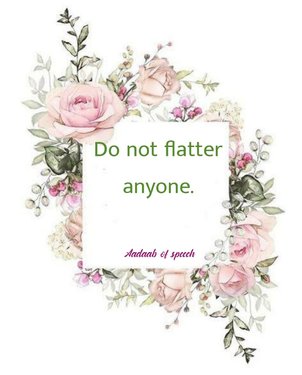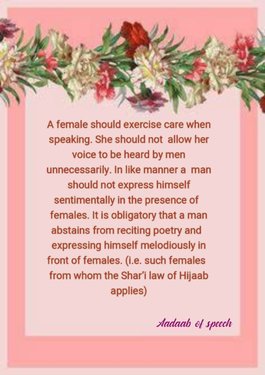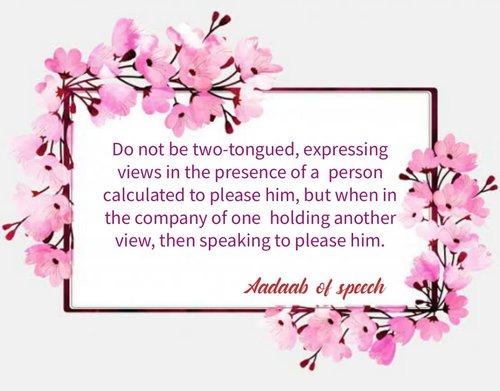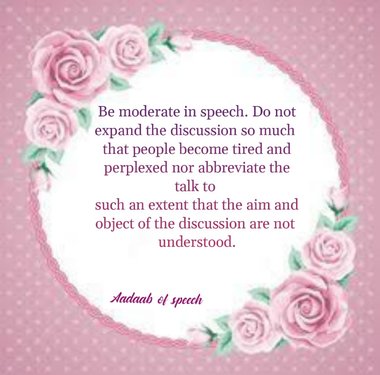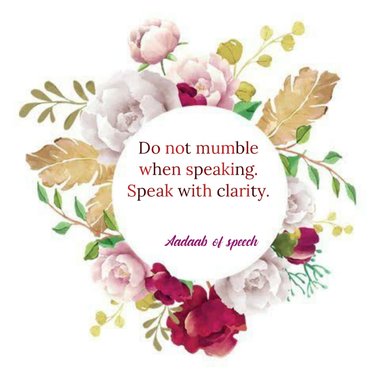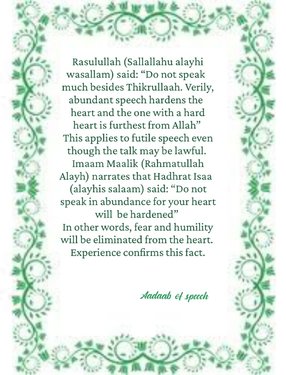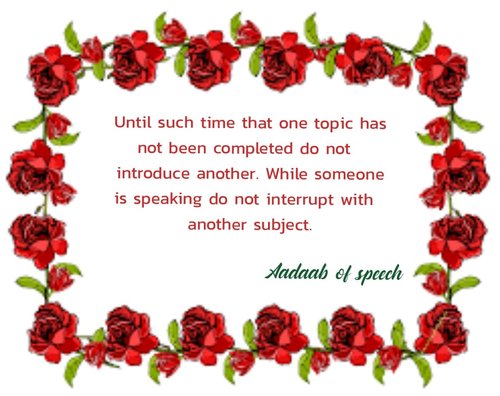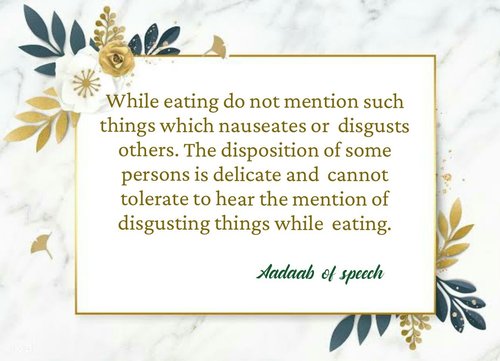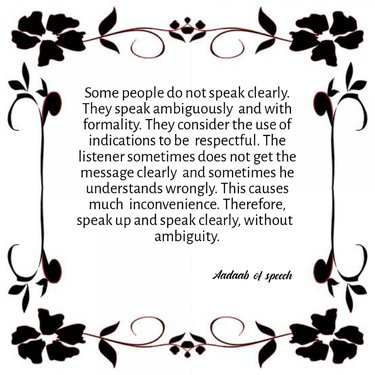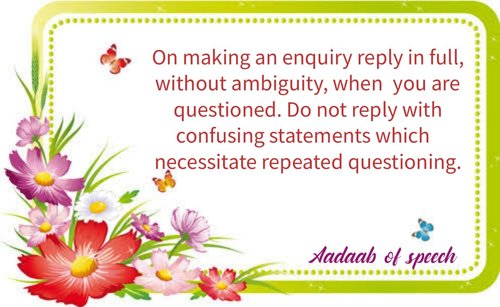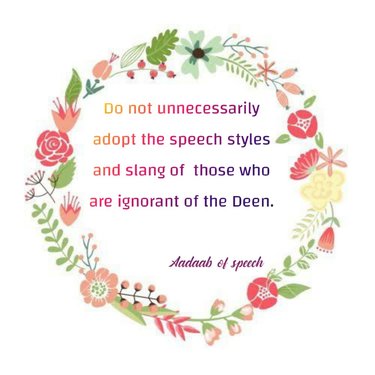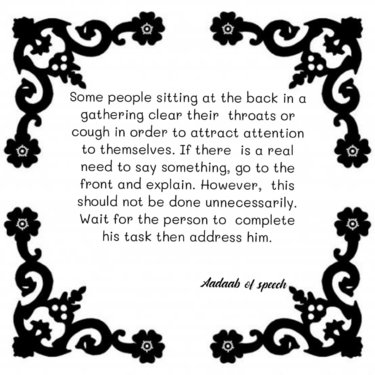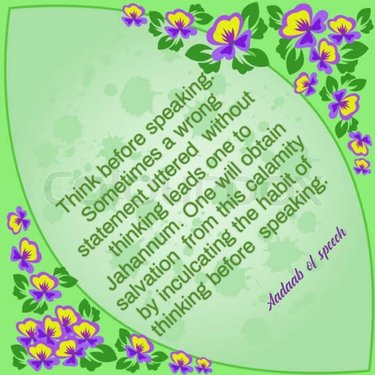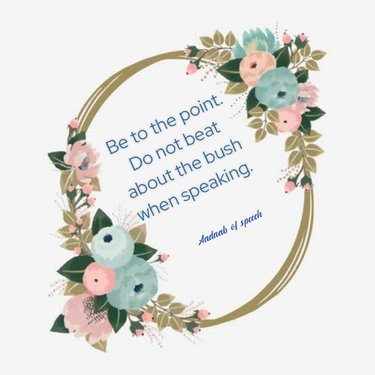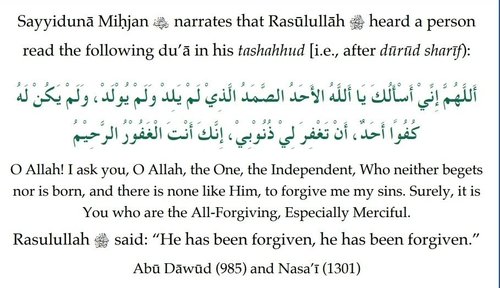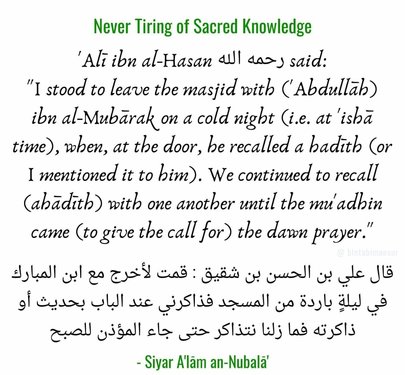-
Posts
1,751 -
Joined
-
Last visited
-
Days Won
106
Content Type
Profiles
Forums
Events
Everything posted by Bint e Aisha
-

Aadaab (Etiquettes) of Speech
Bint e Aisha replied to Bint e Aisha's topic in Inspiring Quotes & Poems
-
TEN SURAHS THAT SAVES YOU FROM TEN THINGS Allamah Jalaluddin Suyuti Rahmatullahi Alaihi says, Surah Fateha saves one from Allah Ta’ala’s wrath. Surah Yaseen will save one from becoming thirsty on the day of Qiyamah. Surah Dukhaan will save one from the fears of the day of Qiyamah. Surah Waaqiah saves one from hunger and poverty. Surah Mulk saves one from the punishment of the grave. Surah Kawthar saves one from the enmity of the enemies. Surah Kaafiroon saves one from turning to kufr at the time of death. Surah Ikhlaas saves one from hypocrisy. Surah Falaq saves one from jealousy of the jealous people. Surah Naas saves one from evil whisperings.
-

Aadaab (Etiquettes) of Speech
Bint e Aisha replied to Bint e Aisha's topic in Inspiring Quotes & Poems
-

Aadaab (Etiquettes) of Speech
Bint e Aisha replied to Bint e Aisha's topic in Inspiring Quotes & Poems
-

Aadaab (Etiquettes) of Speech
Bint e Aisha replied to Bint e Aisha's topic in Inspiring Quotes & Poems
-

Aadaab (Etiquettes) of Speech
Bint e Aisha replied to Bint e Aisha's topic in Inspiring Quotes & Poems
-

Aadaab (Etiquettes) of Speech
Bint e Aisha replied to Bint e Aisha's topic in Inspiring Quotes & Poems
-

Aadaab (Etiquettes) of Speech
Bint e Aisha replied to Bint e Aisha's topic in Inspiring Quotes & Poems
-

Aadaab (Etiquettes) of Speech
Bint e Aisha replied to Bint e Aisha's topic in Inspiring Quotes & Poems
-

Aadaab (Etiquettes) of Speech
Bint e Aisha replied to Bint e Aisha's topic in Inspiring Quotes & Poems
-

Aadaab (Etiquettes) of Speech
Bint e Aisha replied to Bint e Aisha's topic in Inspiring Quotes & Poems
-

Aadaab (Etiquettes) of Speech
Bint e Aisha replied to Bint e Aisha's topic in Inspiring Quotes & Poems
-

Aadaab (Etiquettes) of Speech
Bint e Aisha replied to Bint e Aisha's topic in Inspiring Quotes & Poems
-

Aadaab (Etiquettes) of Speech
Bint e Aisha replied to Bint e Aisha's topic in Inspiring Quotes & Poems
-

Aadaab (Etiquettes) of Speech
Bint e Aisha replied to Bint e Aisha's topic in Inspiring Quotes & Poems
-

Aadaab (Etiquettes) of Speech
Bint e Aisha replied to Bint e Aisha's topic in Inspiring Quotes & Poems
-

Aadaab (Etiquettes) of Speech
Bint e Aisha replied to Bint e Aisha's topic in Inspiring Quotes & Poems
-

Aadaab (Etiquettes) of Speech
Bint e Aisha replied to Bint e Aisha's topic in Inspiring Quotes & Poems
-
﷽ A cure for praises A spiritual student (murid) wrote: When some one praises me in front of me, I have contradictory feelings in my heart about it. I like it and at the same time I stop those praising me to not praise me. Please guide me on how I should handle this correctly. Jazaak Allah Hadhrat Mufti Taqi Usmani sahib (Hafizahullah) replied: “Spontaneous natural happiness is not detrimental. On these occasions contemplate that, all praise is due to Allah SWT, He made them see my good state. If they were to know of my reality they would have hated me.” (Meraj us Salikeen)
-
-
-
"Reflect over the favours of Allah Ta`ala, both material and spiritual. The more you will reflect the more you will discover Allah's love." And Allah Ta`ala knows best (Mufti) E Salejee Source
-
بسم الله الرحمن الرحيم Thursday Majlis | Mufti Ebrahim Desai Saheb 1) Mutual interaction on Social Media, a new form of gangsterism 2) Do not attack anyones dignity and honour 3) Propagate Haqq according to the Sunnah DOWNLOAD Spiritual Advices of Mufti Ebrahim Desai Darul Mahmood | darulmahmood.net

